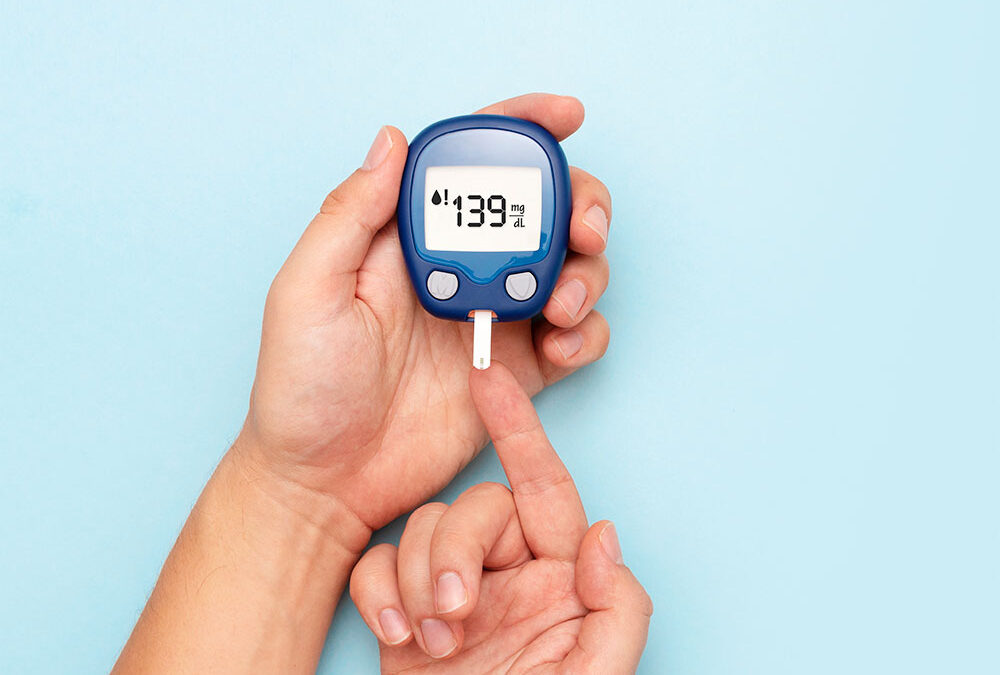
Learn How Diabetes Affects Your Oral Health
Diabetes is a growing chronic condition affecting millions worldwide. While much of the conversation around diabetes focuses on blood sugar control, its impact on oral health is often overlooked. However, the relationship between diabetes and oral health is significant, and understanding it can help you protect your teeth and gums.
Diabetes and Oral Health Link
Diabetes affects the body’s ability to process sugar, leading to high blood sugar levels. Over time, these elevated glucose levels affect various parts of your body, including the mouth. Here’s how diabetes can impact oral health:
Increased Risk of Gum Disease
High blood sugar levels reduce your body’s ability to fight off infections, making it easier for harmful bacteria to survive in your mouth, leading to a heightened risk of developing gum disease, which can cause red, swollen, and bleeding gums. Gum disease or gingivitis also make it difficult to manage blood sugar levels, creating a two-way relationship between diabetes and oral health.
Dry Mouth (Xerostomia)
People with diabetes often experience dry mouth due to reduced saliva production. Saliva flushes away harmful bacteria and neutralizing acids in the mouth, so a lack of salivary flow increases the risk of cavities, bad breath, and oral infections.
Slow Healing of Oral Wounds
Diabetes can impede the body’s healing process due to reduced blood flow and a weakened immune system. This can be problematic for oral surgery, tooth extractions, or injuries in the mouth.
Increased Risk of Oral Infections
Oral thrush, which is a fungal infection is more common in people with diabetes. High sugar levels in saliva provide an ideal environment for the fungus to grow.
Tooth Decay (Cavities)
When your blood sugar levels are high, the sugar in saliva increases as well. Bacteria in your mouth utilise these sugars, in turn producing harmful acids that erodes tooth enamel and leads to cavities.
Burning Mouth Syndrome
Some people with diabetes experience a burning sensation in the mouth, which can be linked to nerve damage or neuropathy, caused by prolonged high blood sugar levels.
Signs of Oral Health Issues in People with Diabetes
If you have diabetes, it’s important to recognize the warning signs of oral health problems. Early detection can prevent more severe issues. Look out for:
- Red, swollen, or bleeding gums
- Persisting bad breath or a bad taste in the mouth
- Dry mouth or a sticky feeling
- White patches on the tongue or cheeks (a sign of oral thrush)
- Chronic pain or sensitivity in the teeth or gums
- Loose teeth or receding gums
Tips for Managing Oral Health with Diabetes
The good news is that with proper care, you can minimise the risk of oral health conditions.
Control Your Blood Sugar Levels
Maintaining blood sugar within a healthy or normal range is crucial. This helps prevent infections, reduces inflammation, and supports faster healing.
Maintain a Good Oral Hygiene Routine
Remember to brush your teeth twice daily with fluoridated toothpaste and use an antibacterial mouthwash to reduce plaque and bacteria. Floss at least daily to remove food particles and plaque from between the teeth.
Visit the Dentist Regularly
Schedule dental checkups every six months (or more often if recommended by your dentist). Inform your dentist or dental professional that you have diabetes so they can provide personalized care.
Quit Smoking
Smoking increases the risk of gum disease, especially for people with diabetes. Stopping smoking will significantly improve your oral health.
Stay Hydrated
Drink enough water to combat dry mouth and keep your mouth moist. Sugar-free gum or lozenges can also help stimulate saliva production.
Watch for Early Signs of Oral Problems
Don’t ignore symptoms like gum swelling, bleeding, or mouth sores. Early dental treatment can prevent minor issues from becoming major problems.
By maintaining good oral hygiene, controlling blood sugar, and visiting your dental professional regularly, you can reduce your risk of oral health complications. Contact us to learn more or to schedule a consultation.
